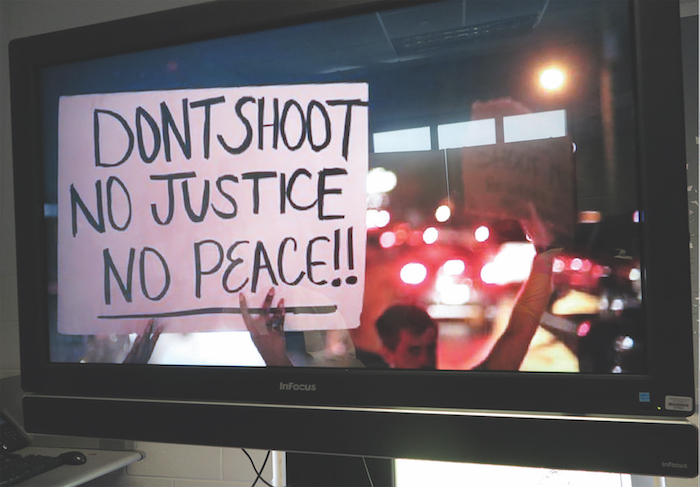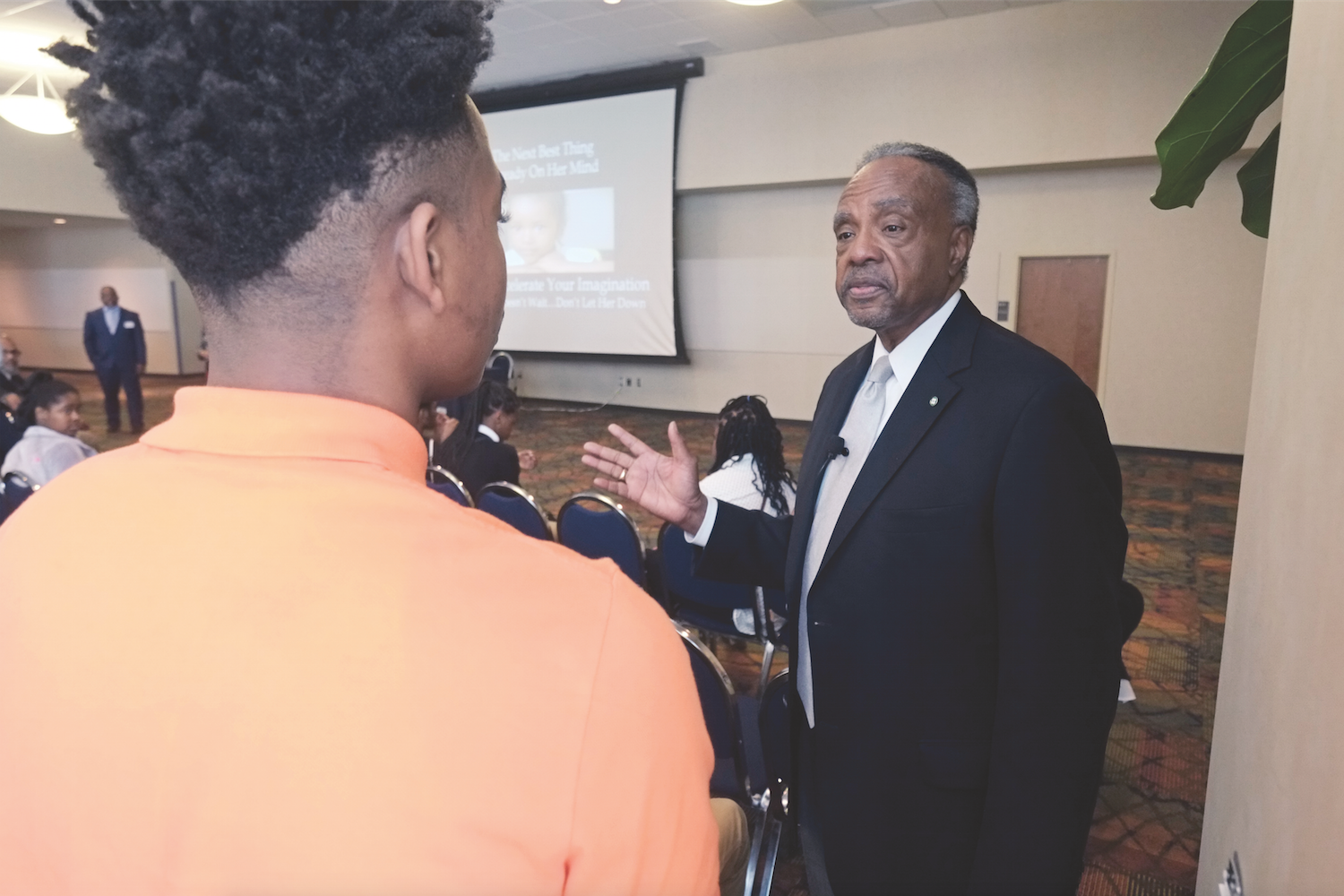by Rachel James-Terry
International human rights activist Ajamu (A-ja-mu) Baraka (Baa-raa-kaa) discussed the details of human rights with students and local supporters in Jackson State University’s College of Liberal Arts in October. Baraka seemed unassuming – dressed in an ebony business suit, white shirt and dark tie. But, his clean-shaven head, salt-and-pepper goatee and heavy-black rimmed glasses suggested more Malcolm X than Green Party vice presidential candidate.
“I’m here to talk about human rights and to put this issue in its proper perspective and to share why the campaign is centered on the idea of human rights,” said Baraka, who is also a geopolitical analyst.
Canvassing the conditions and struggles of the people he encountered during his nationwide travels, he identified the following mutual and observed themes:
• Homelessness
• Disappearance of jobs
• Inability of people to live and exist with dignity
• Corporations poisoning communities with toxic waste
• Uninsured or under-insured people

“The fact is that we go to so many communities, and they are food deserts. There is no food. You have to get in a car and drive for miles to be able to shop and when you get to those places you find that there is inferior and very unhealthy food in those places,” Baraka said.
His words seemed to be an indictment of a country that leads the world in food waste, disposing of millions of tons annually, according to research. Additionally, painting a picture that emerged as more Third World than First World, Baraka stated that in 2016 all people in the United States still do not have access to “something as basic as water.”
“All of these issues, all of these things that are lacking in the individual and collective lives of people: These are in fact human-rights violations, and we want people to understand that,” he said.
Revealing hints of the ideologies that may have led to his branding as radical and controversial figure by mainstream media, Baraka asserted that transcending the limitations of U.S. Constitutionalism is one outcome for those who place civil liberty issues and violations within the framework of human rights. Baraka warns of the rising impediments if people relieve the government of any obligation to meet the most primitive thresholds of human survival. He explains that not viewing simple necessities as a human right narrows the range of appeals a society can make. “You undermine the morality of your demands, and you disconnect from what’s happening around the world,” he said.
Baraka deemed an ability to view life from beyond a “U.S. lens” as an essential and significant development that enables a fresh perspective, correlating the human rights violations in the U.S. to those in the rest of the world.









Leave a Reply